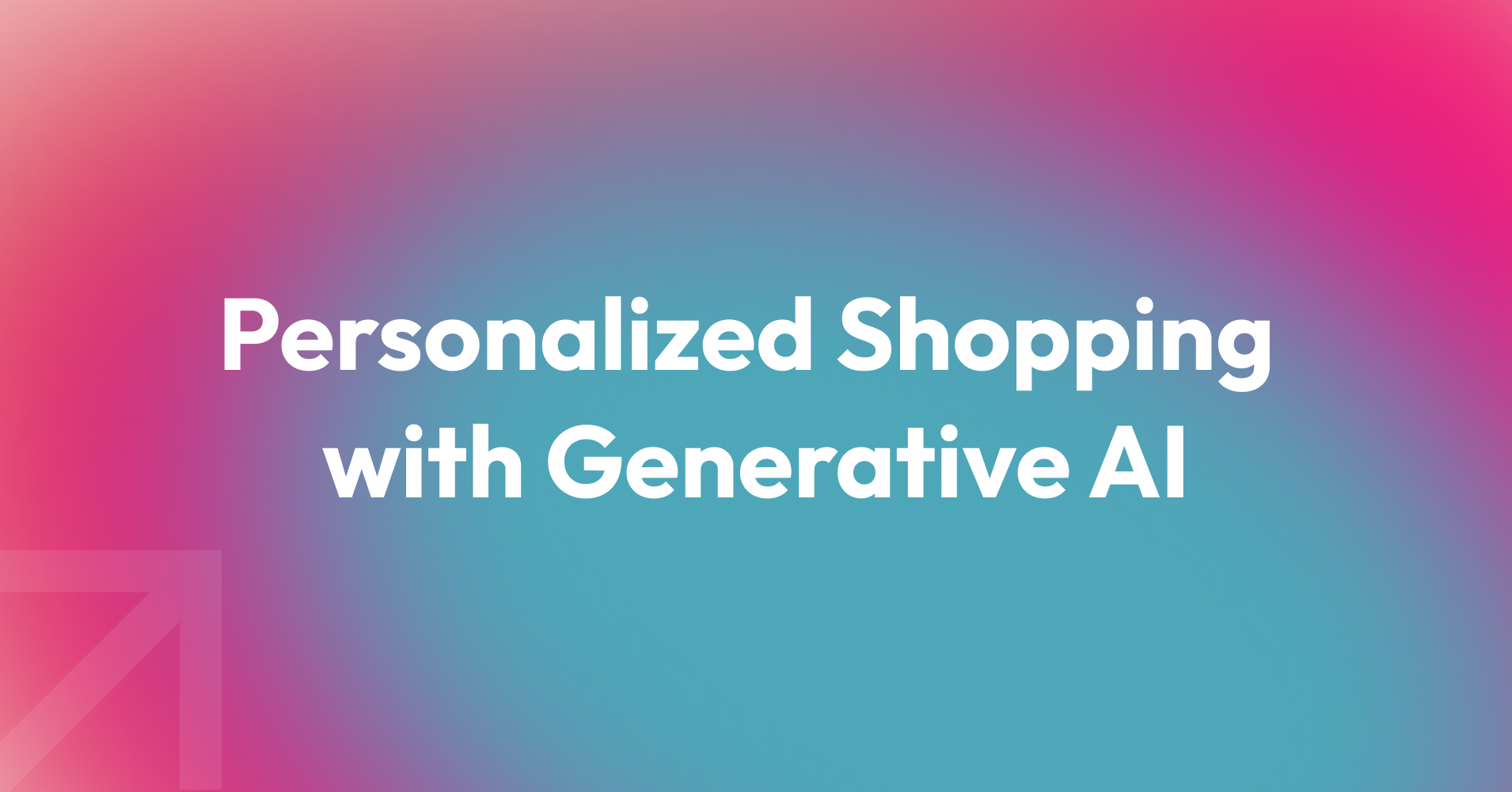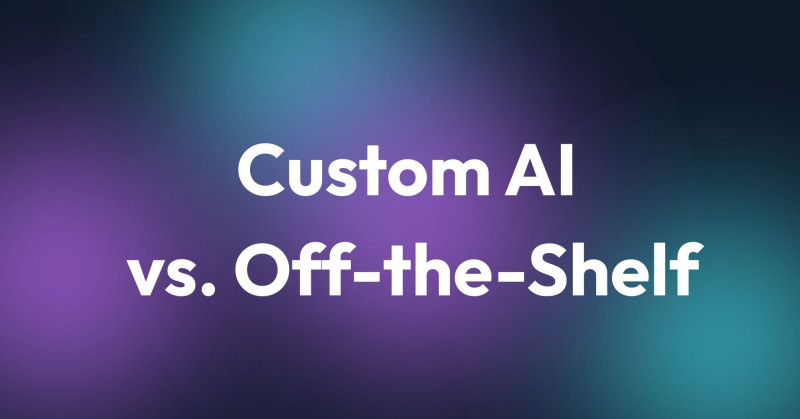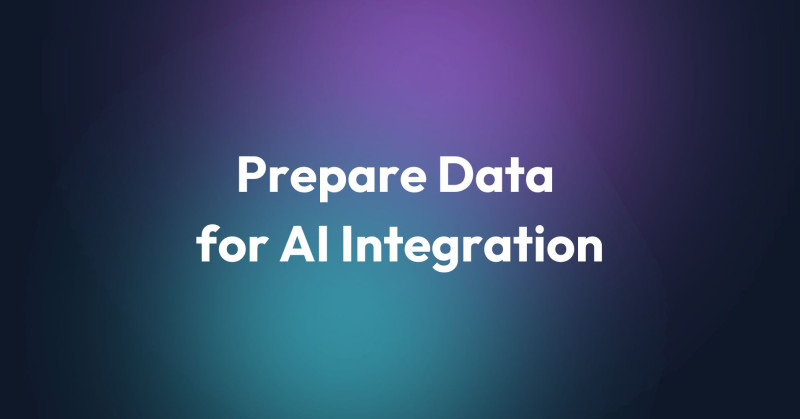E-commerce is evolving rapidly. Customers no longer want generic recommendations—they expect shopping platforms to understand their preferences, anticipate their needs, and deliver highly personalized experiences. Traditional recommendation systems have paved the way, but they often fall short in creating engaging, real-time interactions. Enter generative AI: a transformative technology that is reshaping personalized shopping and setting new e-commerce trends.

What Is Generative AI in Online Shopping?
Generative AI refers to advanced models (like GPT) that use natural language processing (NLP) and machine learning to create new, contextually relevant content. In the context of e-commerce, generative AI can:
Generate personalized product recommendations in real time
Create tailored product descriptions, landing pages, and newsletters
Enable conversational shopping assistants that respond dynamically
Automatically build bundles and cross-sell/upsell offers
Unlike traditional algorithms, generative AI adapts to user intent and behavior instantly, making shopping journeys more engaging and efficient.
Practical Applications of Generative AI in E-Commerce
1. Dynamic Product Recommendations
Move beyond static “customers also bought” suggestions. AI analyzes behavior, purchase history, and emerging trends to recommend products with higher accuracy.
2. Personalized Content Creation
AI generates descriptions, blog posts, or promotional campaigns that adapt to customer personas, boosting engagement and SEO visibility.
3. Conversational Shopping Assistants
Chatbots and voice assistants powered by generative AI provide human-like interactions—guiding users through product discovery, checkout, and support.
4. Smart Bundling and Promotions
Generative AI creates personalized offers, like complementary items or loyalty-based bundles, to increase average order value (AOV).
Business Benefits for Mid-to-Large Organizations
Head of Product / CX: Enhanced customer journeys and higher conversion rates
CTO / VP of Engineering: Scalable AI-powered features that integrate seamlessly with existing stacks
Digital Platform Owners: Consistent UX/UI across channels while tailoring experiences per user
AI / Data Leaders: Turning customer data into actionable insights and real-world personalization
Generative AI is not only a customer-facing innovation but also a driver of business efficiency and competitive advantage.
Real-World Impact: Measurable E-Commerce Trends
Conversion Rates: Personalized recommendations can increase conversions by 20–30%
Average Order Value (AOV): Dynamic cross-sells and upsells boost basket size
Cart Abandonment: Personalized reminders and offers reduce abandonment rates significantly
Customer Loyalty: Tailored interactions lead to longer-term engagement and repeat purchases
Challenges and Risks
Data Dependency: High-quality customer data is crucial for meaningful personalization
Content Accuracy: AI-generated descriptions may require review to avoid errors
Compliance: GDPR and AI Act require careful handling of personal data
Trust: Transparent AI systems are essential to maintain customer confidence
Adopting generative AI responsibly means ensuring oversight, governance, and clear ethical frameworks.
How to Implement Generative AI in E-Commerce
Integrate with Existing Systems: Connect AI with CRM, CMS, and marketing automation tools
Start with a Pilot: Roll out AI personalization in one product category or customer segment
Measure KPIs: Track CTR, conversion rate, AOV, and customer satisfaction (CSAT)
Build a Cross-Functional Team: Align product, engineering, and data experts around AI initiatives
Scale Gradually: Expand to more categories, regions, and personalization layers
FAQ: Generative AI in Personalized Shopping
What is generative AI in e-commerce?
Generative AI uses machine learning to create personalized shopping experiences through tailored recommendations, dynamic content, and conversational assistants.
How does AI improve personalized shopping?
It adapts in real time to customer behavior, delivering relevant product suggestions, content, and offers that boost conversions and engagement.
Is generative AI an important e-commerce trend?
Yes. Generative AI is one of the most impactful e-commerce trends, shaping how businesses personalize at scale.
What are examples of AI in e-commerce personalization?
Dynamic product recommendations, AI-driven chatbots, personalized landing pages, and automated cross-sell bundles.
How can businesses measure ROI from generative AI in shopping?
Track metrics like conversion rate, AOV, repeat purchases, and customer satisfaction.
Final Thoughts
Generative AI is revolutionizing personalized shopping, driving the next wave of e-commerce trends. From tailored recommendations to dynamic content creation, it enables businesses to create more engaging, customer-centric experiences that improve satisfaction and revenue.
Companies that embrace generative AI today will gain a lasting competitive edge in tomorrow’s e-commerce landscape.





















